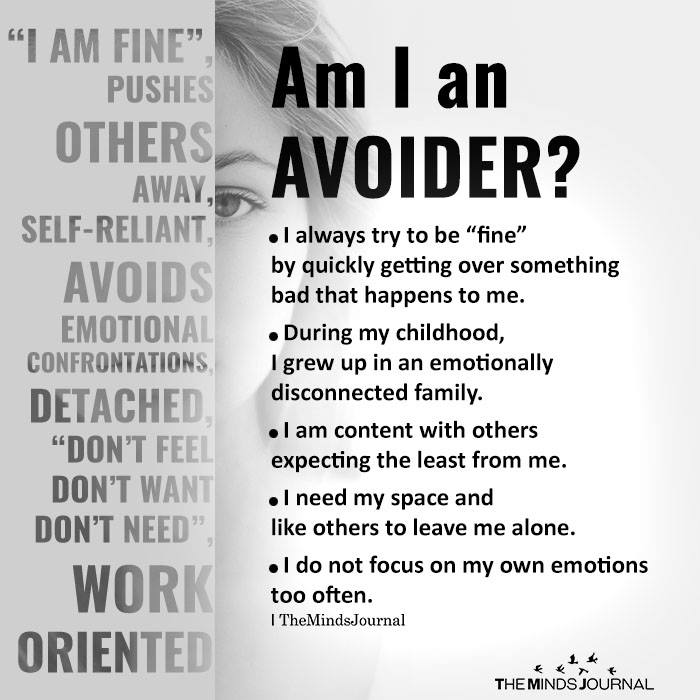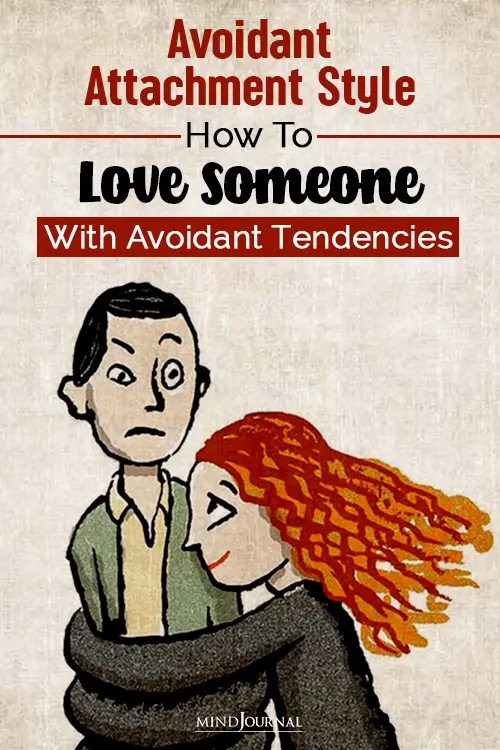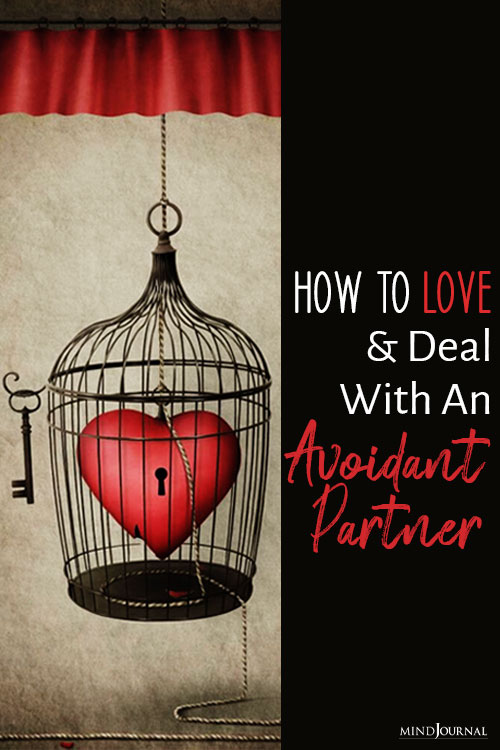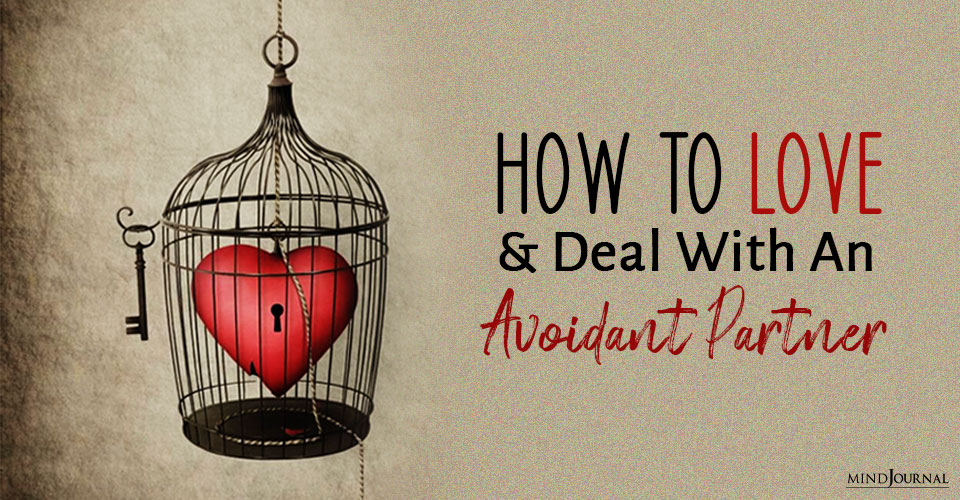Out of all the attachment styles, the avoidant attachment style is probably the one that leaves everyone confused. But what is it exactly, and what does it entail?
Most people have never heard of avoidant attachment and it is extremely important to understand this type of attachment so you know whether you do this or if you are in a relationship with someone who behaves in this way.
What is Avoidant Attachment Style?
Avoidant attachment is the avoidance of intimacy, emotions, and confrontation. There are a lot of aspects to a relationship that are emotional, and people who use avoidant attachment avoid them because that is how they were programmed early in life.
This is yet another childhood trauma. Children learn through repetition that it is not ok to feel so they learn to avoid and suppress their emotions. Typically, the adults the child had around them growing up were not emotionally available or were unresponsive to what the child needed to feel whole and healthy.
Related: The Attachment Theory: How Childhood Attachment Affects Adult Relationships
Children need to connect with their parents or caregivers and have a yearning to be close to them. Over time the child learned that the adults were not able to give them what they needed so they stopped yearning for that closeness. They also stopped expressing themselves emotionally. The child did not learn that they are amazing and loved. They were not shown affection whether that be hugging, touching, or kissing.
Perhaps the child grew up in an environment where the adults were uncomfortable with feelings. They could not express their fears, worries, or sadness. The adult in their life could not hold a space for them to express themselves without fear of being told “you’re too emotional” or “be tougher.”
They were just invalidated which led the child to begin not trusting their own feelings because they were never validated. Children NEED validation. It allows them to know that what they are feeling is OK. By ignoring the child, they learned over time to avoid feeling.

Learning how to handle life and getting validation is a learned action. A child only instinctively knows that he or she wants love. The story could be a mom doesn’t hug the child and a dad can’t talk to the child. As the child continues to develop, they learn not to trust how they feel because of their situation. They will feel they can’t trust people because people tend to disappoint.
As an adult, you can spot this within people who avoid emotions at all costs. They avoid confrontation and feelings, and cannot handle stress, fear, or disappointment. There’s an avoidance of saying, “I’m not good today,” if that is the case. Having feelings and learning to move through them is mental health.
Related: How Your Attachment Style Influences the Success of Your Relationship
Avoidance can be a multitude of things — connections, feelings, intimacy, and more.
On the receiving end of this, you may question if the person really loves or cares about you. Or maybe you wonder why they don’t try harder in the relationship. It’s important to know that it’s not that they don’t love you or want to try harder, but rather that the wound is in front of them causing them to not be able to experience the relationship you desire.
You’re hitting the wall and not getting to the core of this person because they feel that if you break down their wall and see them, there’s a fear attached to that — the fear of not being enough. There are so many assumptions, and if they are a narcissist, that wall is up and is made out of heavy-duty bricks. It’s not your responsibility to break it down. They have to want to take that wall down for it to happen.
This is where people get stuck in abusive cycles. You can see that the wall is up, but you believe everyone is a good person and you want to get through to get the relationship you want. It’s important to always remember that it’s not your responsibility, and some people are not capable of opening the window.
You may also have a yearning inside of yourself to heal this person. This is where people say that they have attracted their mother or father. You will always attract what you haven’t healed and that’s important to remember. Being able to heal the previous wound will allow you to see the bricks and that person for who they are. You’ll realize it’s not going to work out because this person isn’t ready to evolve.
You need to recognize that you were attracted to this person because this is something you are trying to heal within yourself, or you are attracting this person based on your past experiences. Until you become conscious and healthy and say to yourself that you will not repeat these behaviors over and over again, you will repeat them.
If you are in a good relationship and this person has a tendency to avoid confrontation, there are a lot of things you both need to work on to heal each other, but you each must heal yourself by yourself. You can do things to give them space to heal themselves.
We all come to the table needing to work on things because none of us are perfect. What’s healthy is being able to find someone who is actually working on themselves by themselves. You both are growing together then.
Related: The 3 Types of Attachment: Which One Drives Your Relationship
The biggest thing to recognize is the elephant in the room. If this person is aware they are an avoidant person because of their past when they do become avoidant in a situation, can they come back to the table to handle the feelings and confrontation or do they continue to avoid it? If they continue to avoid it, this is not the person who wants to take responsibility for their actions and improve the relationship, as well as themselves.
Consistency in any relationship is important. It can take years of reinforcement to get there. When you have gone through severe trauma, you’re going to need a lot of reinforcement. You must be patient with someone and give them the space they need, but also know it has nothing to do with you. Holding your boundaries is also very important.
Written By Stephanie Lyn
Originally Appeared In Stephanie Lyn Life Coaching










Leave a Reply
You must be logged in to post a comment.